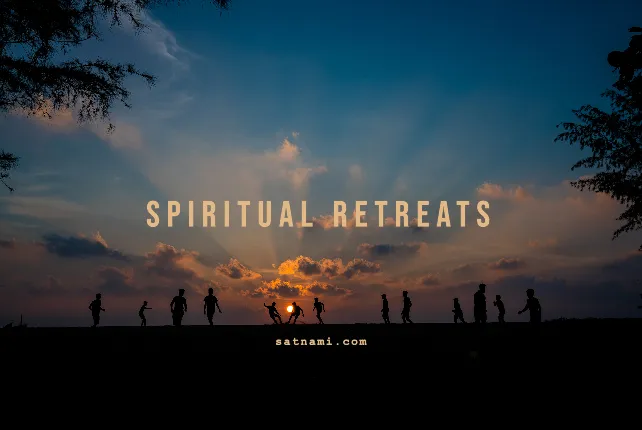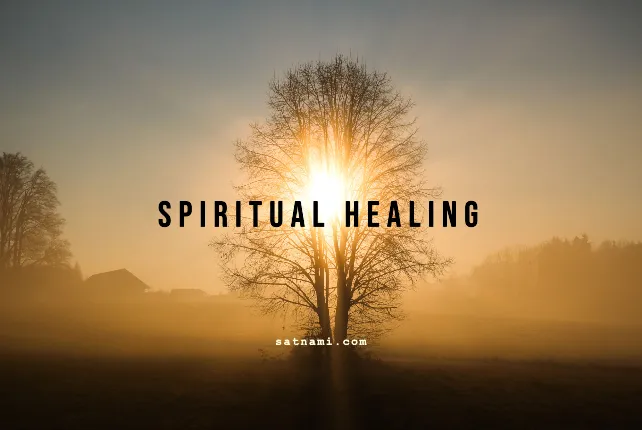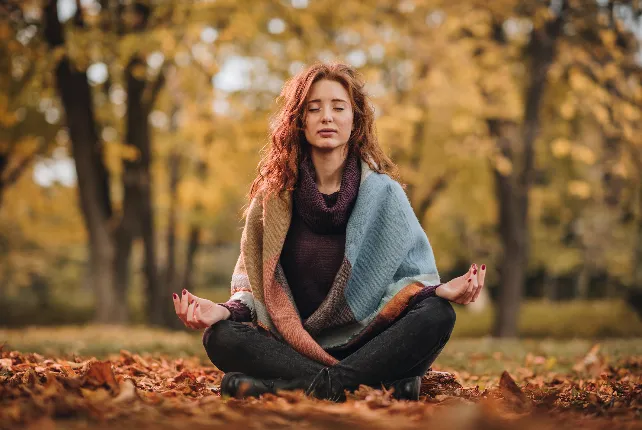Spiritual retreats offer a unique opportunity for personal growth, healing, and deepening one’s connection with the divine or the inner self. These retreats are often held in tranquil settings, designed to help individuals disconnect from the distractions of daily life and reconnect with their spiritual path. Whether you are seeking to deepen your faith, experience inner peace, or find clarity, a spiritual retreat can provide the environment and guidance necessary to achieve these goals.
What is a Spiritual Retreat?
A spiritual retreat is a period of time set aside for focused spiritual practice, typically in a peaceful and isolated environment. These retreats allow individuals to take a break from their everyday routines, meditate, pray, reflect, and explore their spiritual beliefs. The goal is to provide space for self-discovery, healing, and growth in an atmosphere free from distractions.
Benefits of Attending a Spiritual Retreat
- Inner Peace and Relaxation
A spiritual retreat provides an escape from the noise and stress of daily life, allowing you to experience deep inner peace. Whether through meditation, prayer, or quiet reflection, you can center yourself and let go of mental clutter. - Personal Transformation
Spiritual retreats often guide participants toward profound personal change, helping them gain clarity about their purpose and direction in life. Retreats may focus on healing, mindfulness, or emotional and spiritual growth, leading to long-lasting transformation. - Enhanced Spiritual Practices
Many people use retreats to deepen their spiritual practices, whether it’s prayer, meditation, yoga, or connection to nature. Guided activities, teachings, and group sessions can enhance your existing practices and provide new tools for spiritual growth. - Community and Support
Attending a retreat offers the chance to connect with like-minded individuals who share your spiritual interests. This sense of community can be deeply uplifting and help build meaningful connections with others on their own spiritual journey. - Healing
Spiritual retreats often provide healing in a holistic manner—mind, body, and soul. Many retreats offer therapeutic activities, such as sound healing, energy work, or nature walks, that help release emotional baggage, trauma, and stress.
Types of Spiritual Retreats
- Silent Retreats
These retreats focus on quietness and stillness, often with little to no communication. Participants may engage in meditation, prayer, and other spiritual practices while avoiding conversation to encourage deep introspection. - Yoga and Meditation Retreats
These retreats focus on incorporating mindfulness, yoga, and meditation practices. They help participants connect with their bodies, minds, and spirits through guided sessions and teachings from experienced instructors. - Healing and Wellness Retreats
Some retreats focus on emotional and physical healing, offering workshops on self-care, wellness practices, and therapies like Reiki, acupuncture, or Ayurvedic healing. - Religious or Faith-Based Retreats
Religious retreats are organized by faith-based organizations, such as Christian, Buddhist, or Hindu groups. These retreats typically include religious teachings, rituals, and ceremonies tailored to deepen one’s faith and connection with the divine. - Nature Retreats
Nature retreats are held in natural environments like mountains, forests, or beaches. These retreats encourage participants to meditate and reflect in the beauty of nature, which often fosters a sense of connection with the Earth and a deeper spiritual awareness.
What to Expect During a Spiritual Retreat
- Structured Schedule
Many spiritual retreats follow a structured daily schedule, which may include early morning meditation, yoga or prayer sessions, meals, personal reflection time, and group activities. Some retreats may also offer teachings or workshops in the evenings. - Time for Reflection and Meditation
Most retreats offer ample time for personal reflection, journaling, and meditation. You’ll likely spend a significant amount of time each day engaging in quiet activities designed to deepen your self-awareness. - Healthy and Nourishing Food
Many spiritual retreats offer clean, nourishing meals designed to cleanse the body and mind. Meals may focus on vegetarian, vegan, or organic diets, with an emphasis on mindful eating and spiritual nourishment. - No Distractions
Most retreats encourage participants to disconnect from technology—this includes refraining from using phones, laptops, and social media to allow for a deeper immersion into the retreat experience. - Supportive Guidance
Many retreats offer guidance from experienced teachers or spiritual leaders. These individuals are there to provide support, answer questions, and lead workshops or teachings to help you grow spiritually.
How to Choose the Right Spiritual Retreat
- Define Your Purpose
Before choosing a retreat, consider your goals. Are you looking for peace of mind, healing, deeper connection to your spirituality, or an opportunity to develop new practices? Identifying your purpose will help you select a retreat that aligns with your needs. - Consider the Type of Retreat
Choose a retreat that suits your preferences. Some people prefer a more structured experience, while others enjoy more flexibility. If you want a deeply spiritual experience, you might look for a religious retreat. If you’re interested in health and wellness, a nature-based or yoga retreat may be ideal. - Location
The location of the retreat is important. Consider whether you want to be surrounded by nature, close to a spiritual center, or within a specific cultural or religious setting. The environment should support the type of experience you’re seeking. - Length of Retreat
Retreats vary in length, from weekend getaways to week-long or even month-long immersions. Choose a retreat that fits into your schedule and provides the time you need to disconnect, reflect, and recharge. - Budget
Spiritual retreats can vary widely in cost. Consider your budget when selecting a retreat. Keep in mind that the investment in your spiritual growth can be priceless, but it’s important to find something that aligns with your financial situation.
Conclusion
Spiritual retreats are powerful tools for self-discovery, healing, and spiritual growth. They offer an opportunity to step away from the chaos of everyday life and immerse yourself in practices that nurture the soul. Whether you’re seeking peace, healing, or transformation, a spiritual retreat can help you reconnect with your inner self and deepen your connection to the divine.
If you feel called to embark on a spiritual retreat, take time to research different options and choose one that aligns with your personal needs and aspirations. A retreat can provide a transformative experience that will benefit your mind, body, and spirit long after the retreat has ended.
Frequently Asked Questions (FAQ)
A spiritual retreat is a period of time spent away from daily life, typically in a peaceful environment, to focus on personal spiritual growth, reflection, meditation, and healing. It allows individuals to reconnect with themselves and explore deeper aspects of spirituality.
Spiritual retreats are open to people of all backgrounds, whether they are beginners or experienced in spiritual practices. Whether you’re seeking peace, clarity, or personal growth, a retreat offers a supportive space for everyone.
The duration of spiritual retreats can vary. Some are weekend retreats, while others may last a week or more. The length depends on the type of retreat and the depth of the experience being offered.
No, spiritual retreats are not limited to people of a particular religion. They often focus on universal spiritual principles such as mindfulness, meditation, and self-awareness, which can benefit anyone seeking personal growth, regardless of their religious beliefs.
It depends on the retreat, but generally, you should bring comfortable clothing, a journal, personal toiletries, and a willingness to be open to new experiences. Some retreats may provide additional items or a list of recommended essentials.




